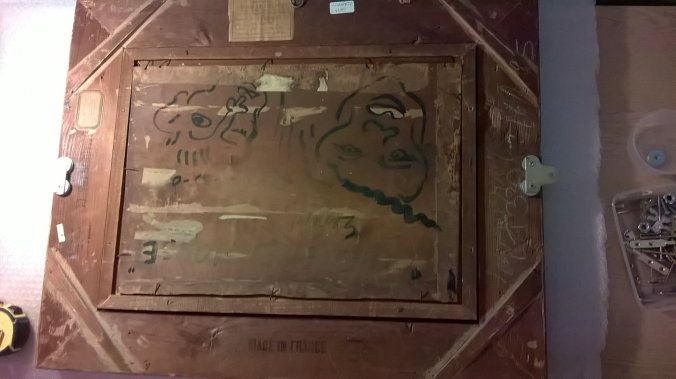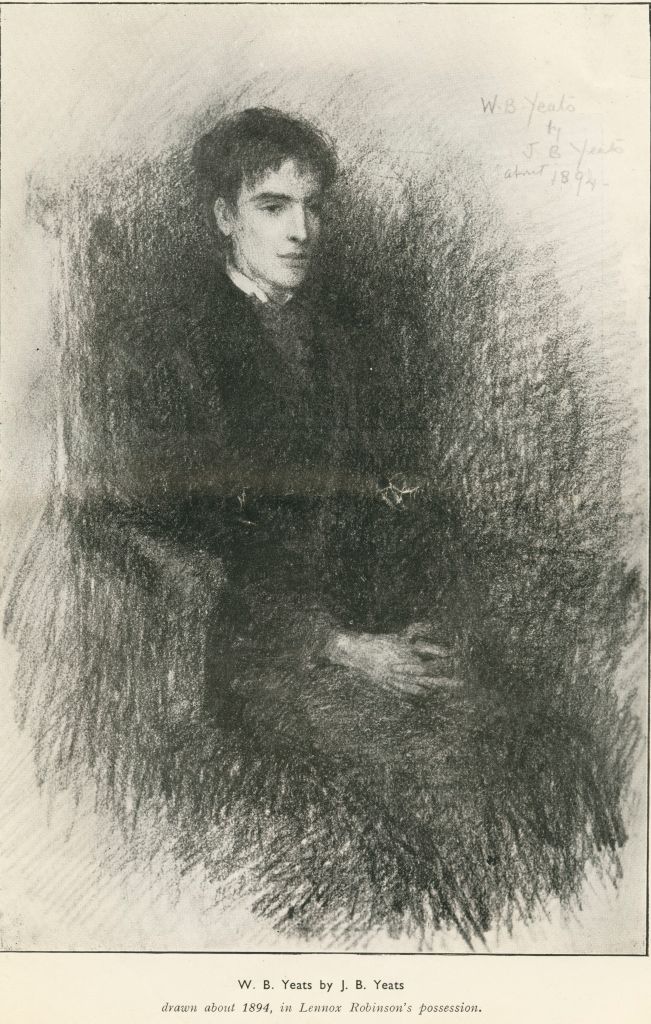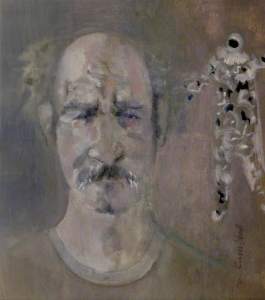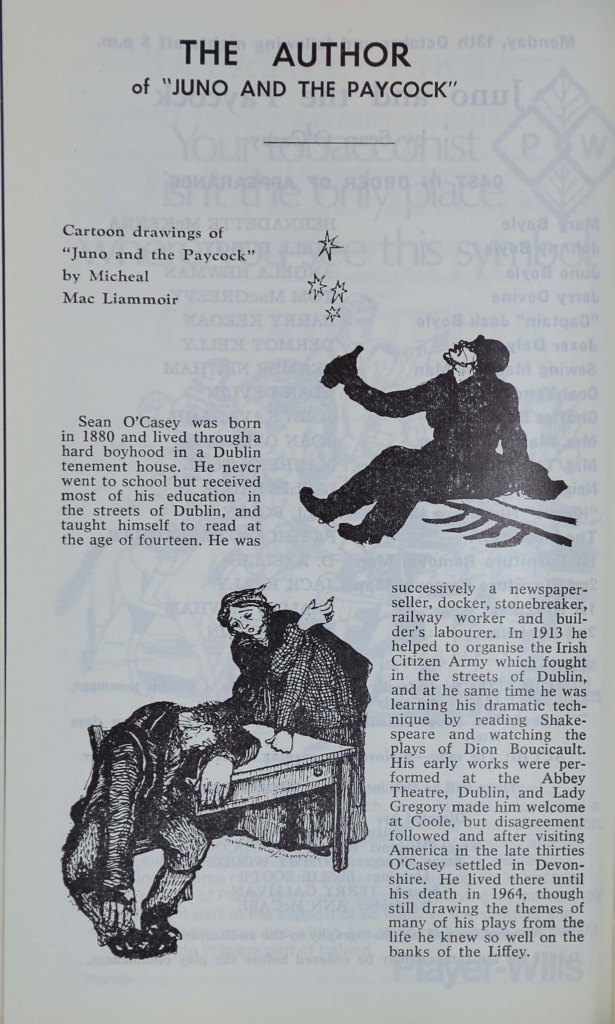'Moon Worship', Yeats & the West - Exhibition at the Hardiman Research Building
Yeats & the West is an exhibition focusing not just on the work and influence of W.B. Yeats, but on the influence on him and wider impact of people, landscapes, languages, crafts, arts, and music from the west of Ireland and beyond. A major addition to the exhibition is a rare oil painting by Gerard Dillon of a night-time scene featuring a moonlight vista of a ‘typical’ Connemara landscape, its figures recalling some lost play by J.M.Synge. These characters, a shawled woman and a virile, moondrunk (or just drunk) young man, bowed in ritual before a moonlit boghole, also appear as shades from out of Yeats’s western phantasmagoria, reminding a viewer of landscapes Yeats himself had created in his first book, The Wanderings of Oisin and Other Poems (1889) (a volume praised by Oscar Wilde and William Morris) – in particular these lines from his poem “Ephemera”:
‘Your eyes that once were never weary of mine
Are bowed in sorrow under pendulous lids,
Because our love is waning.’And then She:‘Although our love is waning, let us stand
By the lone border of the lake once more,
Together in that hour of gentleness
When the poor tired child, passion, falls asleep.
How far away the stars seem, and how far
Is our first kiss, and ah, how old my heart!’
The artist Gerard Dillon was born in Belfast in April 1916 and grew up there, until moving to London in 1934 where he worked a house painter while honing his craft and trying to further his career as an artist. Despite being reared and working in the early years of his life in the urban streetscapes of Belfast, Dublin and London, it was the west of Ireland, most especially Connemara and the western islands which would have a major and lasting effect and influence on his work. Dillon would spend the year of 1950-1951 living and painting on the island of Inislacken. Over the next decade Dillon would receive substantial international recognition for his expressionism steeped in western culture and imagery.
Dillon did not confine himself to painting. He produced designs for posters, playbills, theatre sets and costumes for productions by the Abbey Theatre, Dublin, in the late 1960s. Working as part of a trio, the artists Arthur Armstrong, Gerard Dillon and George Campbell made up the consortium known, alphabetically, as A.D.C. This group also designed the posters for the first three theatre production posters at the Abbey Theatre after it reopened in 1966 following a fire at the theatre more than ten years before. The programme, from the 1969 production of Juno and the Paycock, two years before Dillon’s death, states in a note that “the posters sprang from the belief that artists should be closely identified with all artistic efforts in the country.”
The programme also contains cartoon drawings of characters from the play including Juno and Captain Boyle by Micheal MacLiammóir. Other similar artwork by MacLiammóir can be seen in the exhibition in the bookplate he designed for the personal library of actor and director Arthur Shields, examples of which are on display in the exhibition cabinets.
As central part of Yeats & the West, the painting ‘The Moon Worshipper’ by Gerard Dillon is on public exhibition for the very first time at the Special Collections Reading Room. Dating from 1948, the painting, in oils on sturdy wood panel, is a wonderful example from a series of moonscapes over Connemara inspired, according to the artist, by a walk home after a late night in Roundstone.

Preparing ‘The Moon Worshipper’ for hanging. The reverse of the panel has been decorated with outline faces.
With the style deliberately primitivist, and the woman wearing one of the red traditional Connemara costumes noted by Synge, the picture’s central enthusiast perhaps wrily recalls the impassioned western pilgrimages of so many artists and writers. The exhibition curators gratefully acknowledge the loan of the painting for the duration of the exhibition, which is open until Christmas at the Hardiman Research Building, NUI Galway.

The Dillon painting and other artworks by Jack B. Yeats on display at the Hardiman Research Building, NUI Galway




Comments